Armenians Prepare Hydroecological Bomb against Azerbaijan
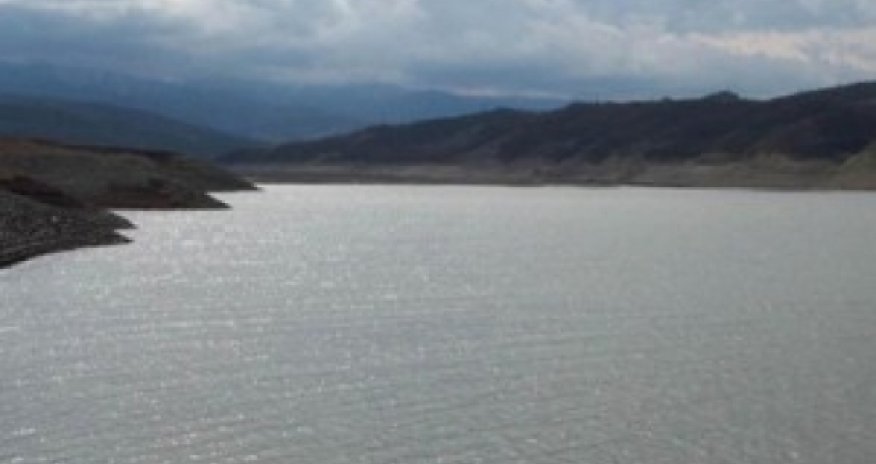
This summer in Baku there will be an international conference, and before that journalists and ambassadors of foreign countries will go to the Tartar district to witness the environmental disaster created in this and six other Azerbaijani districts by the separatist regime in Nagorno-Karabakh.
An international conference on the same topic has already been held in Tartar. This was reported by the coordinator of the project "Sarsang - to prevent a humanitarian catastrophe" Samir Isayev. The project is implemented by the Association for Civil Society Development in Azerbaijan (AVCIYA).
The Sarsang reservoir was built in the Mardakert region of the Nagorno-Karabakh Autonomous Region of Azerbaijan in 1976 to collect water from the Tartar River and provide irrigation of fields in the lower areas. In this region, it is the highest (726 meters above sea level) reservoir that holds 560 million cubic meters of pure mountain water.
More than 20 years the Sarsang reservoir has been run by the illegal Karabakh authorities. Their management destroyed the dam of the reservoir because they do not repair it, and the excess water flows down into the areas, where Azerbaijanis live. And intentional discharge of water occurs in winter and at night, when the water for irrigation is not needed, and sleepers do not have time to jump out of their homes and become victims of artificial floods.
"We can not predict when, what day the Armenians will open the floodgates. Much of the water comes from Sarsang to Tartar in approximately 6 hours. Calculating this time, the Armenians open the floodgates so that water appears in our homes at 4:00 or 5:00 a.m., when people are asleep and do not have time to save their property, said at the presentation the deputy executive of the Tartar region, Abbas Javadov.
In the summer drought killed crops of the Azerbaijanis. Armenians do not despise water from the reservoir in the summer. Water is scarce even for drinking. Over the years, several thousand artesian wells have been drilled in the low-lying areas and 35 new wells were launched in the area last year, but the quality of the underground water is bad, as it is mineralized and its consumption causes disease in humans. In addition, due to the lack of water on the earth's surface, subsurface resources are drying up. Every year more and more artesian wells dry. Sometimes Armenians poison the water of the Tartar River, where it enters the Azerbaijani regions. Crops watered with such water dry. The area's farmers are left without clean water for irrigation and without earnings, leaving Azerbaijan," said Javadov.
Participant in the meeting, head of the department of the State Committee for Land Reclamation and Water Resources, Ajdar Javadov, informed about the economic disadvantages of operating artesian wells. Not even counting the cost of its drilling, the annual operating of each well is spent 8-10 thousand AZN by the state.
"The State Committee held a meeting in the Tartar area, devoted to the problems of irrigation. The Tartar River water irrigates 56 thousand hectares. But the quality of water from the river and the wells is very different. In addition, over 15 years the subsurface resources have languished, because in each district below the Sarsang reservoir, there are 500-800 wells drilled and operated," Javadov said.
The representative of the Ministry of Ecology and Natural Resources reported the results of their regularly conducted monitoring of water quality in the river Tartar. "Armenians violate all international conventions relating to the protection of transboundary waters. The Tartar River in the occupied territory is drained with sewage and chemical contaminants, knowing that the water gets to the lands inhabited by Azerbaijanis," he added.
Javadov expressed concern of the power of the Tartar district and the local population regarding the possibility of Armenians using the Sarsang reservoir as a source of environmental and humanitarian disaster. However, the ecological catastrophe happens every day, we talked about it, and the threat of undermining the dam of the reservoir or its natural destruction due to deterioration always exists. And then water falling from a height will make a flood and destroy people, animals, property and fields in the Agdam, Tartar, Agjabedi , Barda , Yevlakh , Agdere and Geranboy areas, where more than 400,000 people live.
The NGO Association AVCIYA collected about three thousand written applications and video speeches from the inhabitants of the named districts, translated them into English and together with the Azerbaijani scanned originals sent them to the UN, OSCE, PACE, the Council of Europe and the European Union, as well as to the foreign embassies in Azerbaijan. The event was attended by the staff of the embassies of Iraq and Qatar. These notes and video speeches by the Azerbaijanis tell about the difficult position in which they have appeared due to the Armenian criminals.
"This work is ongoing. Collecting new applications, we translate them, scan them and send the appeals to 15 international organizations," said Isayev.
"The administration of the Tartar region requests AVCIYA and the country's leadership to help the residents overcome the shortage of clean river water," addressed the audience Abbas Javadov.
Kamal Ali
ANN.Az
























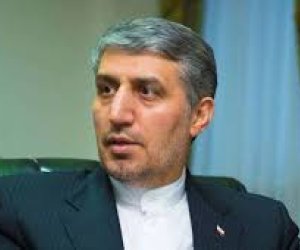
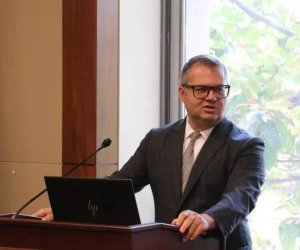


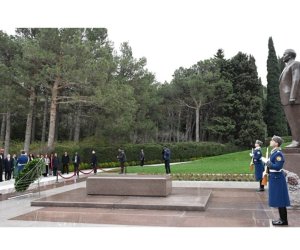

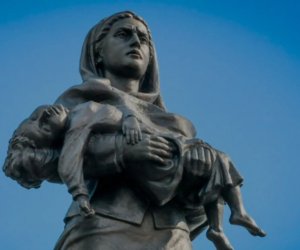
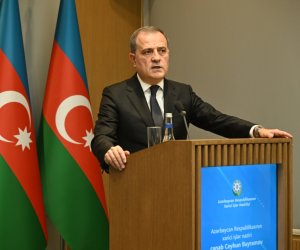
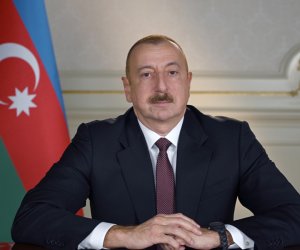



 Photo
Photo 



 Video
Video 

